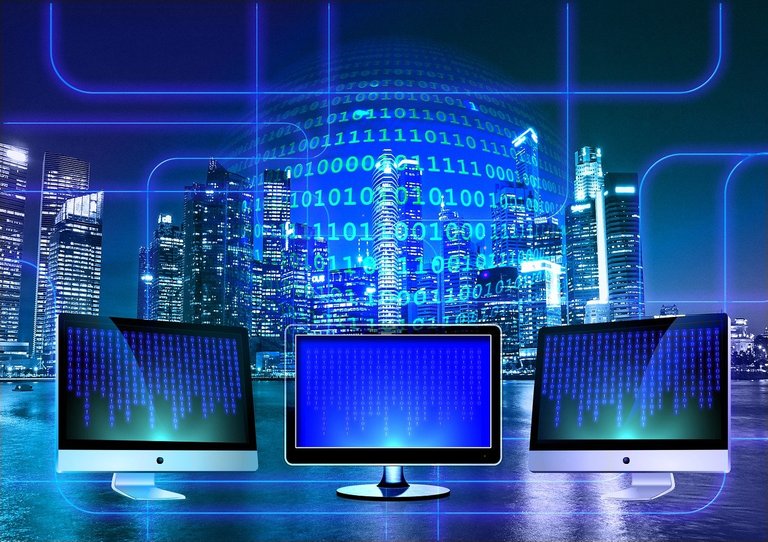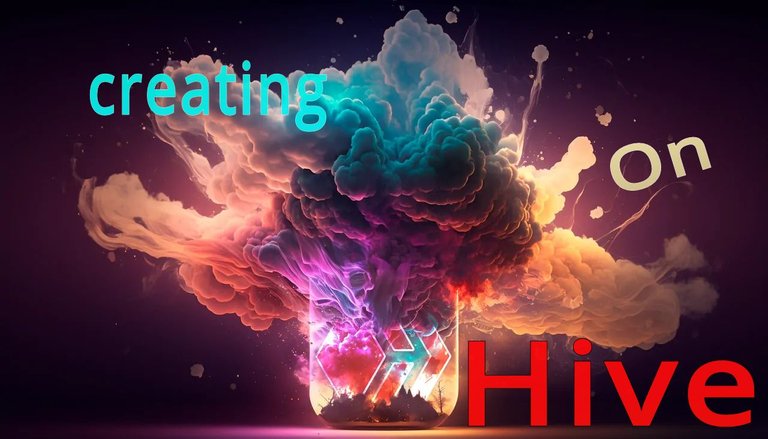After AI, What's Next?
AI seems to be the talk of the town lately and will continue to, up to a certain period or may be forever, who knows. However it's existence has quite an interesting history, when we......... sorry our ancestors began to count, it opened the door to two very interesting opportunities that has greatly influenced our technological pursuits. On the one hand it gave us mathematics and on the other hand it gave us computational devices. The computational devices first started out as simple calculating devices, then moved to complex calculating devices which in turn led to the invention of classical computers, internet and now AI (artificial intelligence). So does it actually stop at AI or could there still exist other evolutions after AI ?
Well, we can't really say, just like those during the era of the use of abacus couldn't anticipate the existence of modern computers, let alone an AI but based on historical trends, we should expect other novel computing technologies. In this article we are going to be looking at some that have been anticipated, given that we are now more intellectually sound than our ancestors but that doesn't mean we would be right - nature just has a way of making us look stupid. Below are some of the anticipated computing technologies that could come after AI.
Quantum Computer
The computers we use currently belongs to what is called a classical computer, because it fundamentally relies on classical physics. The fastest classical computers are the supercomputers, problems that would take ordinary classical computers (like your PC) many years to solve could take supercomputers days, months or fewer years. However, there are problems too that when given to the supercomputer can also take it many years to solve and this is where quantum computers come in. The superiority of supercomputers compared to other classical computers comes from the fact that they make use of thousands to millions of microprocessors/CPU in parallel (classical parallelism) - which is space and energy consuming. A quantum computer with fewer microprocessors can perform exponentially faster than the current fastest supercomputer and the reason is because of a quantum property called superposition of states, that is, a single classical microprocessor can perform one information processing at a time but a single quantum microprocessor can perform multiple information processing at the same time (quantum parallelism). We are currently at the early stages of it's development (quantum computers) and there are challenges that are needed to be addressed, like quantum decoherence, before they can become fully commercial. Just like advancement in classical computers led to other interesting innovations/technologies like the internet, AI, our current mobile phones, e.t.c, advancement in quantum computers is expected to usher new kinds of technologies too.
BCI (Brain-computer interface)
Most of us would be very familiar with the business mogul, Elon Musk and also one of his companies called "Neuralink" that is working on such technologies. BCIs are objects that serve as a direct point of interaction between computers and the brain. For better understanding, let's look at your mobile phones, when you look at your phone screen when it's on, you see a lot of icons/objects (both clickable and unclickable) that represents a lot of things, things like the apps, battery percent, data, flashlight, WiFi, e.t.c. These icons/objects, together with the screen background makes up what is called the "user interface". Your phone doesn't actually understand those icons, what they understand are the codes used for their programming, also not everyone of us understands those codes. So for we (the users) and the phone to be able to understand and interact with each other seamlessly, we need that interface. The difference between the interface in our phone scenario and BCI is actually our external body, let me explain. When you want to open an app on your phone for example, the decision first takes place in your brain and then the brain sends a signal to your hand that you use to click on the app icon. With a BCI you don't need your hand to open the app, the brain directly opens it and for the brain to do this, it and your phone needs to understand each other which is almost impossible except with a third object - an interface. This interface is specifically designed for the direct interaction between the brain and your phone, this interface is generally referred to as the BCI (Brain-computer interface). The technology has been around for quite sometime now, there has been ups and downs, although we are still at it's early stages of it's development.
One very important use of the BCI is when one has certain neurological impairments, for example, if somebody looses his/her arms or a part of the brain responsible for controlling movement is impaired, then BCIs can serve as a "neuroprosthetic". Another interesting use case is to serve as a countermeasure when AIs (Artificial intelligence) go rogue in the future. Also, together with robotics and internet of things (IoT) we could achieve local telekinesis - don't know if anyone has thought of this before.
Internet of Things (IoT)
The internet is basically the global interconnection of computers and telecommunication devices for the purpose of storing and dissemination of information and resources (indirectly). When you use your personal computers or phones to access the internet, they are part of this network/interconnections. The thing with conventional internet is that it is used mostly by humans, our computers and phones serve as some sort of internet avatar - if we assume the internet to be a world of it's own. These avatars should have unique internet identities because many people can use the same kind of device (the same company name and specifications), this is where the IP address comes in.
In IoT, the internet is extended to non-human entities, like your house, electrical appliances, chair, door and even animals. These non-human entities are given sensors, the ability to processes information and softwares, in the way that computers do. Equipped with such properties they can have their own internet avatars and thus IP addresses, only that we would still control their behaviour on/through the internet. For example, let's assume you were at work, then one of your appliances which happens to be receiving electricity starts behaving abnormal to a point that it may cause a fire outbreak and you had children at home, with the help of IoT you could get a notification on your phone - through a specialized software, with the information you can simply just switch it off with your phone. In fact, such kind of home is called an "automated home", where almost everything in the home can be controlled remotely.
This technology is still in it's early stages of development and there are obstacles that's preventing it from being wide spread, one of the obstacles is related to privacy and security. As with the case of our everyday internet, someone's automated home can be hacked. For now such technologies are used for specific purposes by few organizations.
Mind uploading Technology
This is rather a very interesting technology, as it encompasses some other technologies, including the ones discussed previously. This technology is expected to make us immortal or immune to physical conditions that can destroy our human body. If you have watched the not too recently released animated series "Pantheon" you would have idea of what this technology is all about. To make a computer become intelligent or display cognitive abilities comparable to that of humans there are for now actually two ways of doing it. One way is through the popular "AI" (artificial intelligence), where neural networks are built from scratch while the other way is through "brain emulation" (copying and simulation of the brain on a computer). If we are to extend the brain emulation further we have a mind uploading technology, in this case everything about the brain down to molecular level is scanned, copied and replicated on a computer or other physical substrate. Which means if your brain was scanned and replicated on the computer, the computer clone is expected to behave exactly like you but you cannot exist in two places at the same time, therefore the original (biological) you would have to die for it to become an upload and thus behave exactly like you. The kind of reality you would find in the computer when you now exist there would be a virtual/simulated reality as it would be designed to look and behave like the actual reality, although that may not be necessary, we can design the reality as we please. The experience would likely be like the kind when you dream while sleeping. Remember that we initially said such technology is supposed to make us immortal, if our physical body dies, our minds doesn't. As interesting as it may sound, it is actually very difficult to do, our technology hasn't gotten so advanced to help us scan/map "everything" in our brain down to molecular level, such processes would also require very powerful computers - quantum computers could be handy here, and some other problems (including philosophical and ethical).
Those are some of the few anticipated technologies that's expected to come or be developed further after AI technology, AIs could also help in speeding up research and developments in those technologies. However, things may not turn out as we envisioned, they may not end up becoming a reality or they may but take a longer time and newer technologies we may not have envisioned may pop out during the waiting period. For now let's continue to speculate and enjoy the benefits of our speculations.
Have a nice f*cking day. 😉
For further reading
Thank you all once again for stopping by to read my jargons and also thank you @stemng, @lemouth and the @Steemstem team for your valuable supports.
Lastly, please don't forget to do the needful
Upvote
Comment
Reblog
If you enjoyed my jargons.



Congratulations!
✅ Good job. Your post has been appreciated and has received support from CHESS BROTHERS ♔ 💪
♟ We invite you to use our hashtag #chessbrothers and learn more about us.
♟♟ You can also reach us on our Discord server and promote your posts there.
♟♟♟ Consider joining our curation trail so we work as a team and you get rewards automatically.
♞♟ Check out our @chessbrotherspro account to learn about the curation process carried out daily by our team.
🥇 If you want to earn profits with your HP delegation and support our project, we invite you to join the Master Investor plan. Here you can learn how to do it.
Kindly
The CHESS BROTHERS team
Thanks for your contribution to the STEMsocial community. Feel free to join us on discord to get to know the rest of us!
Please consider delegating to the @stemsocial account (85% of the curation rewards are returned).
Thanks for including @stemsocial as a beneficiary, which gives you stronger support.